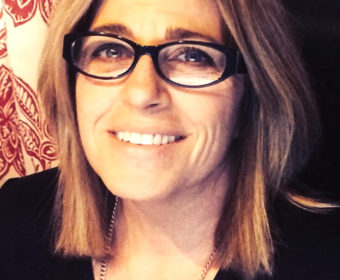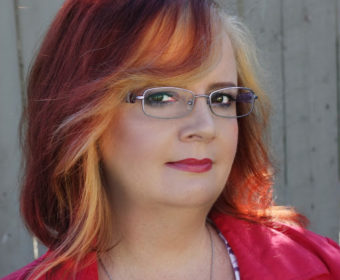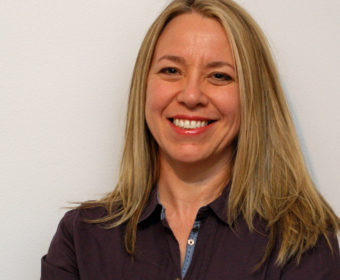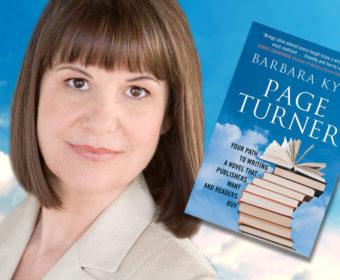Your cart is currently empty!

What to Expect When You’re Expecting a Novel ~ Part 2

Insight from the Pros Regarding Editing
By MJ Moores
Did I pique your interest in PART I when I mentioned the focus of the traditional publishing house editor is different from that of a freelance editor? How could that be? Editing is editing…right?
Now, we all know there are four distinct phases of fiction and non-fiction manuscript editing:
Substantive/Content – The “Big Picture” story edit.
Stylistic/Line – A “close look” at your prose for clarity, continuity, and conciseness.
Copy Edit – SPaG (spelling, punctuation, and grammar) & standard manuscript formatting.
Proofreading – Finding typos & production errors.
These four types of editing might be blended or blurred, with mixing and matching, but they cover the standard editing format for ALL editors—self, amateur, freelance, agent, and publishing house.
However…
(you knew this was coming)
What’s the reason (other than nobody’s perfect) an agent or publishing house will not offer you a contract without some form of the words “must be agreeable to further editing of the manuscript”? And why are the expectations so different?
TRADITIONAL PUBLISHERS & THEIR PROCESS
I’ll let these four industry renowned professionals give you the inside scoop: Literary Agent Stacey Donaghy (Donaghy Literary Group), Publisher Cheryl Kaye Tardif (Imajin Books), Freelance Editor (and prior Senior Editor for Harlequin) Wanda Ottewell, and Bestselling Author and Mentor Barbara Kyle (of the acclaimed Thornleigh Saga).
S. Donaghy: An agent may work on further edits with an author because they have come across areas within the story that might raise flags for an acquisition editor and, therefore, will want to work on changes prior to submitting to publishers. Agents have a pretty good eye and understanding for areas that might be problematic. This is due to living and breathing specific genre areas, being familiar with what sells and what doesn’t, and why certain projects are not selling.
C. Tardif: Not all “professional” editors are actually professionals. Many are writers who have a great grasp of the English language, grammar, and punctuation, but they may be missing experience in some areas. Not every editor uses Chicago Manual of Style as their guide, and this is the industry’s leading manual on grammar, punctuation, etc. Some editors only do a quick spell check, grammar check and a quick proofread. Some do detailed, substantive editing. Not all editors have the same experience, talents or eagle eye. And they ALL miss stuff.
W. Ottewell: There could be many reasons why a manuscript—even a polished one—needs to be edited. Perhaps an element needs to be added or tweaked to fit the intended publishing program. For example, the sensuality may need to be boosted or toned down to required levels. Or, the publishing house could have bought the manuscript to fit a comedic program so the more serious elements of the story need to be lightened. Or, perhaps the word length needs to be cut or increased to fit the proposed book specs. Also, the publishing house will edit the manuscript to apply house style. Revisions aren’t necessarily a bad thing.
B. Kyle: The editor who acquired your book will bring a fresh eye to the work, whereas you may have become a little blind to its weaknesses after slogging through it a hundred times, and she may also have subtle insights into the market that you do not. In my experience, radical editing recommendations from one’s publisher are rare. In fact, I once had the opposite happen. I’d delivered on deadline the manuscript for the fifth book in my Thornleigh Saga to my editor at Kensington, but I heard nothing back from her. I asked my agent if he knew what was up. He’d already read the manuscript and said, “I suspect you haven’t heard from Audrey simply because she feels the book needs no work.” Hooray. The manuscript then proceeded through the standard copy edit and proofread, of course, with the usual minor refinements.
The big takeaway here is that a literary agent knows their market and what sells. They are aware of publishing house preferences, peculiarities, and market trends.
Yes, their editing recommendations follow the four standard practices I mentioned above, but they lean heavily on their experience and in-depth knowledge of the industry and publishing house preferences. Even Ms. Kyle’s agent works with her so that happy moments like the once she described above can happen. But note, her manuscript still went through a copy edit and a proofread before production.
They all do.
SELF-PUBLISHING EDITORIAL FOCUS
That being said, if we take a quick look at these professionals’ opinions on how editing is then different again for self-publishers, you’ll notice how the craft becomes skewed to the medium. Here’s what they had to say:
S. Donaghy: I can’t really speak to this, but as a general comment I would say that if a writer has researched an editor then it would make sense to listen to and consider the editor’s advice. After all, the editor’s expertise is what you are paying for, and if you trust the editor enough to pay them, it might be worth listening and taking their advice. Unless you are dead set against their ideas.
C. Tardif: Writers need to have an open mind when someone else is editing their work. They must learn to separate their ego and emotions about the work from the work itself and how it should look/read. But if you want a career as a novelist, then you must treat writing and everything about it as a business. Hire an editor with a solid track record. Invest time and money into your career.
W. Ottewell: In my opinion, every manuscript deserves the help of a good editor. A skilled editor—one who respects the author and appreciates how much work and courage goes into writing a manuscript—can apply his or her knowledge of craft, of story structure to the story. […] A good editor can suggest ways to improve or change. If an author wants to publish the best book she can, then it would make sense to seek the professional services of an editor who can help make the story work.
B. Kyle: Whether you’re self-published or traditionally published, maintain a professional and cordial relationship with your editor. Keep an open mind—then use your own best judgement for the final draft.
Ultimately, no matter if you are self-published or with an agency or traditional house, the advice of your editor (freelance or on contract) is invaluable. And, while any author has the right not to follow through on a suggested edit in a revision, it is imperative the lines of communication are kept open for discussion. However, there is no Managing Editor or Publisher who will make the final say when you’re self-published.
Being self-published means it’s the author’s job to wear all the hats and, ultimately, the editor works for the author, not the author for the publishing house. That fundamental dynamic is often enough to allow authors to maintain their blinders about the overall quality of their work, not take advice or follow through on a suggestion and move forward with their own vision. This can’t help but skew the traditional author/editor relationship and the final product the author publishes might look nothing like what their editor advised.
THE BIG FINISH
Finally, we have some fantastic parting words of advice from each of these industry professionals which you would be remiss to neglect:
S. Donaghy: If you sign with an agent or publisher, the work is just beginning. Edits are an integral part of the process at almost every stage. The biggest misconception is that being signed means a story is good to go and will be sold. As I mentioned prior, the market demands are such that a writer who is seeking a successful publishing career, in either the traditional or indie market, must be prepared to edit, edit, and edit again. It is critical that your story be polished and in fantastic editorial shape; if it is not, the readership will let you know.
C. Tardif: Editing is an exciting part of the creation process. This is where a good story is tweaked, cleaned, and polished until it sparkles and becomes the best it can be. Rather than looking at editing as a negative or “necessary evil,” consider it a gift—not only for you but for your characters and readers. You want to give readers your very best, right? Edit, edit, edit!
W. Ottewell: [R]evisions and edits [should] be viewed as opportunities to improve the story, rather than a battle for control over it. Even if the author doesn’t agree with a particular edit, try to consider why the change was made—or even ask the editor. Maybe there is an issue with the plot, the character, the writing. And if so, perhaps there is a different and better way to fix it. Most editors truly want to help make the story the best it can be.
B. Kyle: Some agents—though not all—are fine editors. My agent of over twenty years, Al Zuckerman, is a superb editor, and I work closely with him through the outline of every book and then through the book’s first draft. If you get to sign with an agent who is a skilled editor, thank your lucky stars. That expertise is golden.
Note: The views and opinions expressed are those of the individual and are not necessarily shared by the WCYR. However, as an organizational body we acknowledge the value of their expression.
 Stacey Donaghy has always been a voracious reader and fan of all things writing. She loves discovering new voices and working with her clients to build long-term writing careers. Her journey began with Corvisiero Literary Agency in New York, where she wore many hats from team manager and trainer, to intern, to agent. Donaghy Literary Group opened in 2013 and to date Stacey has sold a total of nine six-figure deals, as well as many other sales in a number of genre areas. Stacey represents NY Times, USA Today and Amazon Bestselling Authors, as well as Authors who have been nominated or have won awards for various works.
Stacey Donaghy has always been a voracious reader and fan of all things writing. She loves discovering new voices and working with her clients to build long-term writing careers. Her journey began with Corvisiero Literary Agency in New York, where she wore many hats from team manager and trainer, to intern, to agent. Donaghy Literary Group opened in 2013 and to date Stacey has sold a total of nine six-figure deals, as well as many other sales in a number of genre areas. Stacey represents NY Times, USA Today and Amazon Bestselling Authors, as well as Authors who have been nominated or have won awards for various works.
 Cheryl Kaye Tardif is an international bestselling author who has sold 300,000+ copies of her works worldwide. You can learn more about her at: www.cherylktardif.com. Her nickname is “Shameless Promoter,” and she gained a lot of interest when CHILDREN OF THE FOG hit #4 on Amazon.com’s Top 100 overall list. Her marketing book, HOW I MADE OVER $42,000 IN 1 MONTH SELLING MY KINDLE eBOOKS has also made many lists. Cheryl also wears the hat of publisher at Imajin Books, which has been publishing books since 2003: www.imajinbooks.com
Cheryl Kaye Tardif is an international bestselling author who has sold 300,000+ copies of her works worldwide. You can learn more about her at: www.cherylktardif.com. Her nickname is “Shameless Promoter,” and she gained a lot of interest when CHILDREN OF THE FOG hit #4 on Amazon.com’s Top 100 overall list. Her marketing book, HOW I MADE OVER $42,000 IN 1 MONTH SELLING MY KINDLE eBOOKS has also made many lists. Cheryl also wears the hat of publisher at Imajin Books, which has been publishing books since 2003: www.imajinbooks.com
 Wanda Ottewell is a freelance editor who specializes in the romance genre. She loves working with authors to leverage the strengths of their writing and believes in empowering them by sharing craft knowledge and tips. The best moments in her job are the ones when she’s so caught up in a story, the editorial voice is silenced—for a little bit. Wanda has a master’s degree in literature and many years’ experience in the publishing industry. She lives in Toronto, ON, and travels whenever possible.
Wanda Ottewell is a freelance editor who specializes in the romance genre. She loves working with authors to leverage the strengths of their writing and believes in empowering them by sharing craft knowledge and tips. The best moments in her job are the ones when she’s so caught up in a story, the editorial voice is silenced—for a little bit. Wanda has a master’s degree in literature and many years’ experience in the publishing industry. She lives in Toronto, ON, and travels whenever possible.
 Barbara Kyle is the author of the acclaimed Thornleigh Saga, a seven-book series of historical novels that follow a middle-class English family’s rise through three tumultuous Tudor reigns (“Riveting Tudor drama” – USA Today). Her latest release is The Traitor’s Daughter. She is also the author of contemporary thrillers, three under pen-name Stephen Kyle, including Beyond Recall, a Literary Guild Selection. Over half a million copies of her books have been sold in seven countries. Barbara has taught writers at the University of Toronto and is a popular presenter at writers’ conferences. Her master classes and manuscript evaluations have helped launch many writers to published success. Visit http://www.BarbaraKyle.com
Barbara Kyle is the author of the acclaimed Thornleigh Saga, a seven-book series of historical novels that follow a middle-class English family’s rise through three tumultuous Tudor reigns (“Riveting Tudor drama” – USA Today). Her latest release is The Traitor’s Daughter. She is also the author of contemporary thrillers, three under pen-name Stephen Kyle, including Beyond Recall, a Literary Guild Selection. Over half a million copies of her books have been sold in seven countries. Barbara has taught writers at the University of Toronto and is a popular presenter at writers’ conferences. Her master classes and manuscript evaluations have helped launch many writers to published success. Visit http://www.BarbaraKyle.com
Best article on pros and cons and advice I have come across in a long time. Thank you for such concise and helpful information.
Glad to be of help! It’s a “grey” area that I’ve tried to write about before but I was asked for more industry support regarding my ideas, so I did just that 🙂